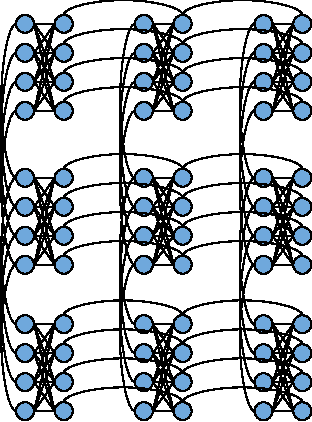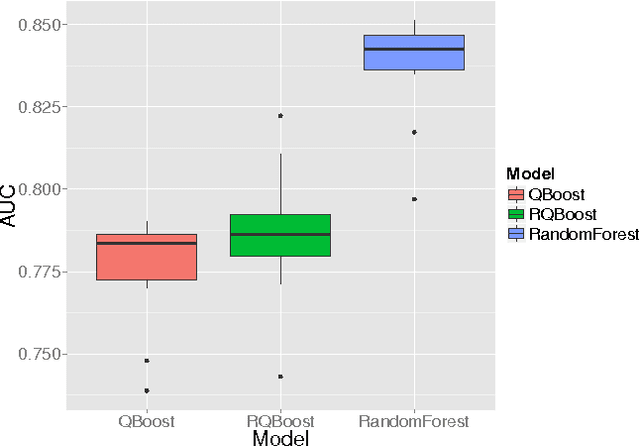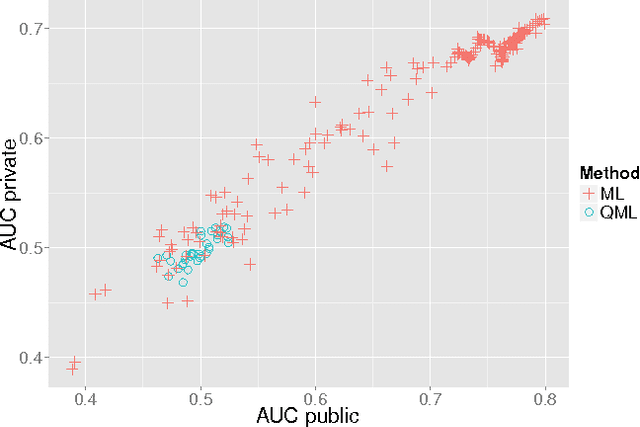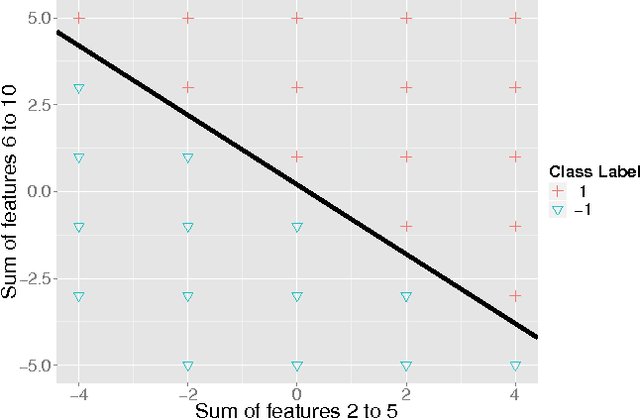Developing Quantum Annealer Driven Data Discovery
Paper and Code
Mar 25, 2016



Machine learning applications are limited by computational power. In this paper, we gain novel insights into the application of quantum annealing (QA) to machine learning (ML) through experiments in natural language processing (NLP), seizure prediction, and linear separability testing. These experiments are performed on QA simulators and early-stage commercial QA hardware and compared to an unprecedented number of traditional ML techniques. We extend QBoost, an early implementation of a binary classifier that utilizes a quantum annealer, via resampling and ensembling of predicted probabilities to produce a more robust class estimator. To determine the strengths and weaknesses of this approach, resampled QBoost (RQBoost) is tested across several datasets and compared to QBoost and traditional ML. We show and explain how QBoost in combination with a commercial QA device are unable to perfectly separate binary class data which is linearly separable via logistic regression with shrinkage. We further explore the performance of RQBoost in the space of NLP and seizure prediction and find QA-enabled ML using QBoost and RQBoost is outperformed by traditional techniques. Additionally, we provide a detailed discussion of algorithmic constraints and trade-offs imposed by the use of this QA hardware. Through these experiments, we provide unique insights into the state of quantum ML via boosting and the use of quantum annealing hardware that are valuable to institutions interested in applying QA to problems in ML and beyond.
 Add to Chrome
Add to Chrome Add to Firefox
Add to Firefox Add to Edge
Add to Edge